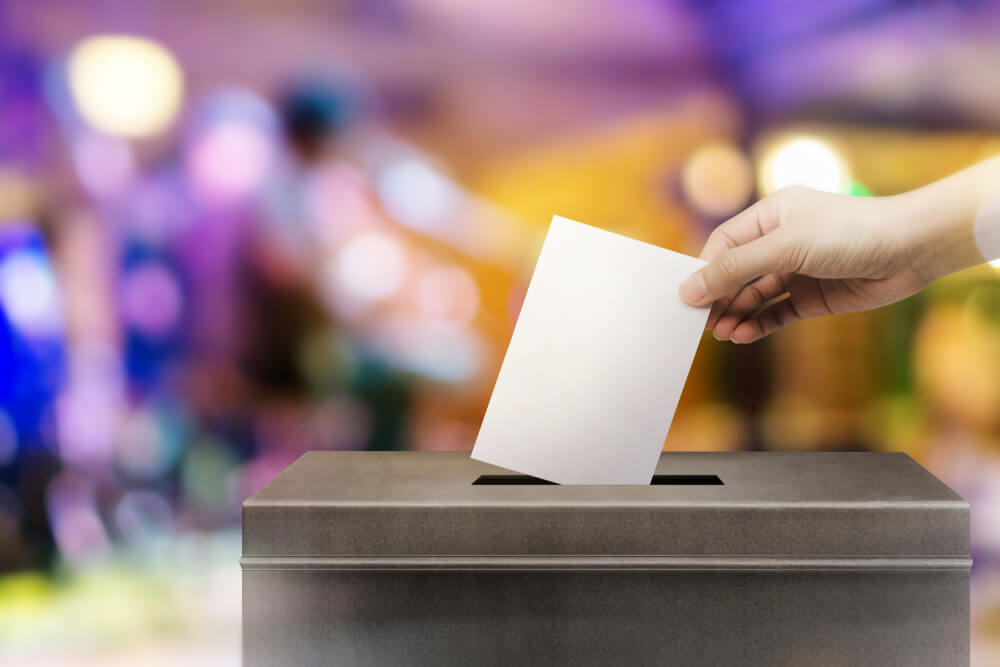With the presidential election less than two months away, politics is on the mind of many Americans right now. We’ve seen that in the questions and conversations that listeners call in to share on Relevant Radio®, and in conversations that are happening between family, friends, and fellow parishioners. The conversation taking place across the country is: what candidates can a Catholic vote for?
Voting can be tricky for a Catholic, as neither political party perfectly aligns with Catholic Social Teaching. Many would prefer that the Church leadership in America just tell us who to vote for, so that they can vote with a clear conscience. But the Church doesn’t do that. The Catholic Church does not endorse political candidates, and there are a number of reasons for that.
To help explain them, Fr. Tim Graff stopped by Morning Air® and shared not only why the Church doesn’t endorse political candidates, but what Catholics can do to vote their conscience.
Responding to the idea that the Church should have a more direct role in politics by endorsing candidates, Fr. Graff said, “I think we’re very involved in the political process, but we may not be involved in the political process in the way people want us to be. One of the easiest things would be to say, ‘Tell me who to vote for.’ But the Church doesn’t do that.”
“What the Church does is say that you need to form your conscience so that you make the right decision that you think God is calling you to,” he continued. “The Church never endorses a candidate, because you’re never going to find a perfect candidate who agrees with us on everything. So what the Church tries to do is guide people in the way to make the right choices when they’re facing an election and when they’re facing issues that they need to make decisions on.”
Fr. Graff discussed how the process of forming one’s conscience when it comes to choosing candidates is an important one, and can help deepen our understanding of Catholic teaching and the world we live in.
“I think sometimes we don’t know enough, or we don’t know why the Church teaches what she teaches about this, that, or the other thing,” he said. “It’s the application of our teaching, our beliefs, our foundational aspects. Whether it’s the dignity of the human person, whether it’s the right of people to work, all those things that influence how we think about the social issues of the day.”
And while some people wish that the Church would get more directly involved in politics, there are other people who think that if Church leadership comments on the social issues of our day that they are violating the separation of Church and state.
“I often get accused of getting involved in politics,” Fr. Graff said. “But I’m not involved in politics, I’m involved in morality. I’m trying to take the teaching of the Church and ask what it says for the social issues of the day. What does the Church say about life issues? What does the Church say about the environment? What does Church teaching teach us about poverty? So it’s not so much politics, but morality.”
But if the Catholic Church doesn’t endorse political candidates, how exactly can Catholics form their conscience to make a decision on Election Day? The United States Conference of Catholic Bishops (USCCB) has provided a document for the faithful, Forming Consciences for Faithful Citizenship, that addresses a myriad of issues and outlines the Catholic teaching on the issues that most affect Americans today.
Fr. Graff said, “The clearest guide that we have in America is Forming Consciences for Faithful Citizenship. I think one of the most helpful things that people can do is go on to the USCCB web site, and there you can find the document. It’s a wonderful summary, not only of how to form your conscience but also of different issues that people face every day.”
Listen to the full conversation below:
Morning Air can be heard weekdays from 5:00 – 8:00 a.m. Central on Relevant Radio® and the Relevant Radio App.


